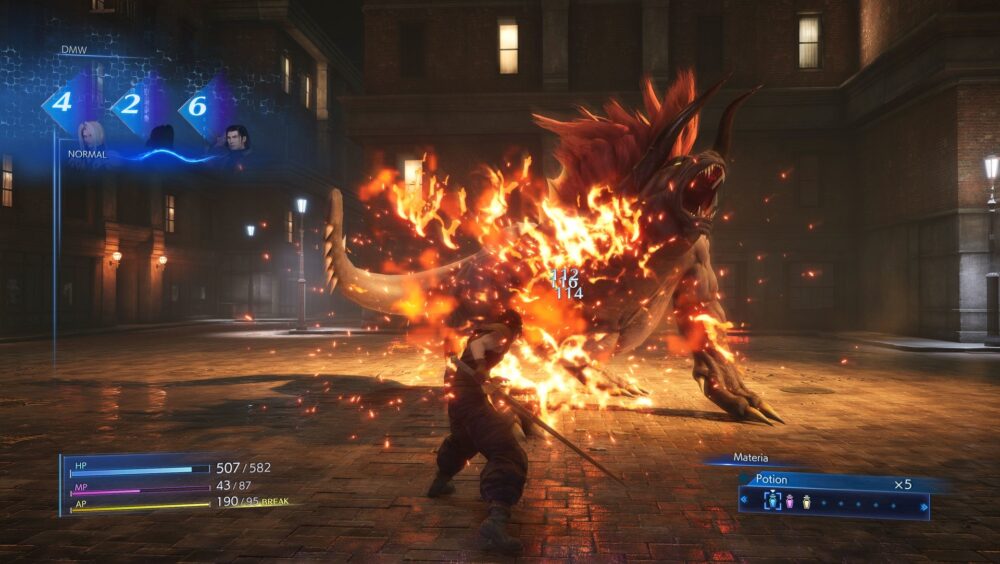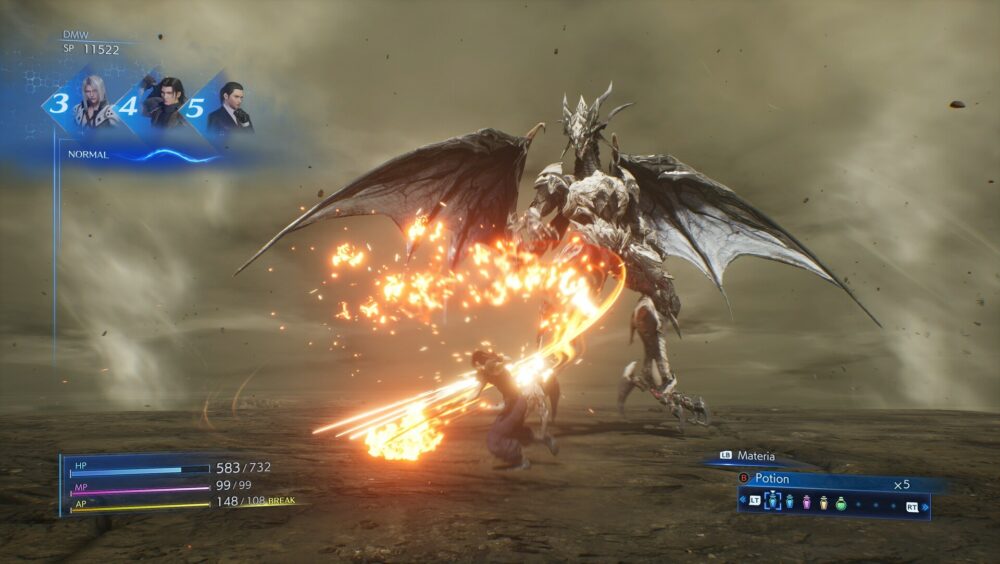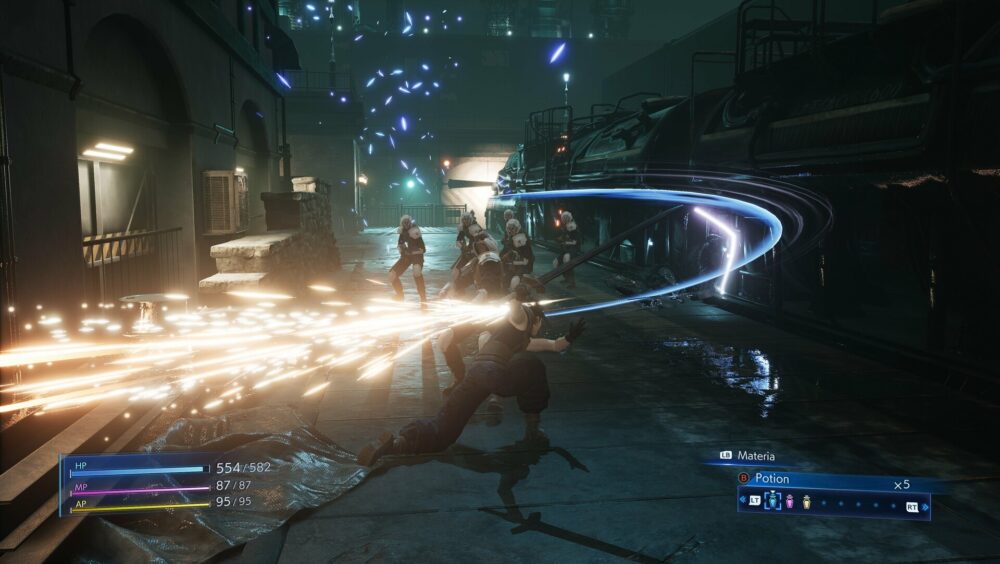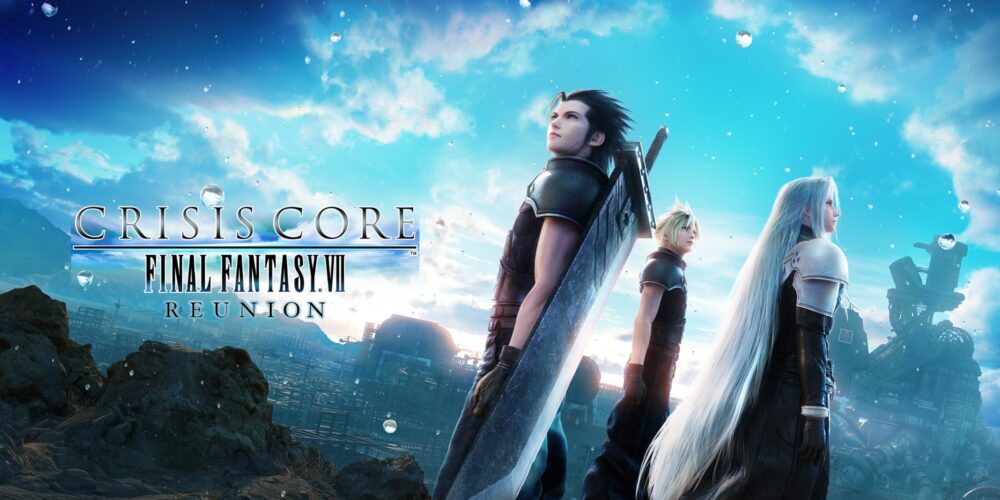Crisis Core –Final Fantasy VII– Reunion is another remake from Square Enix, bringing their classics that were once only found on mobile and handheld devices to larger consoles and PC. Following the story of Zack Fair, the man who set Cloud on his journey, this PSP romp has seen new models, lighting as well as a few mechanical changes in its move to stronger systems. However, with some debatable remasters, remakes, and reimaginings, does Crisis Core Final Fantasy VII Reunion fit the bill for old fans and new?
My Dream Is to Become a Hero!

Crisis Core Final Fantasy VII Reunion, unlike FF7R from a few years back, follows the original story entirely without a change. We go through Zack’s starting as a SOLDIER 2nd class member, under the tutelage of 1st class member Angeal, with some supporting action from Sephiroth. Running through simulations, Zack is put on a true mission to aid in the war against Wutai.
Becoming the “hero” of the Wutai war, Zack is quickly set on a mission to uncover the recently defected SOLDIER 1st class member, Genesis. Whilst the three 1sts were all buddies, you will get some assistance from both Angeal and Sephiroth along the way, but quickly find that their allegiances may be a bit too strong to their friendship over their loyalty to the company.
As a prequel story, Crisis Core Final Fantasy VII Reunion doesn’t deviate too harshly from the original release of Final Fantasy VII, or the lore set up in other releases such as Before Crisis and minor mentions in Advent Children. Due to this, fans of the series and those who played the original will know what’s coming.
The main story of Crisis Core Final Fantasy VII Reunion will only take you around 14 hours or so if you’re listening to all the new voiced dialogue. However, Crisis Core Final Fantasy VII Reunion is set up as a side-quest-athon through its Shinra missions and missable content from talking with the populace. With 300 missions to take on, albeit reusing the same 8 or so maps, you can make your playthrough last up to 23 hours or 45 with completionists in mind.
The Power of SOLDIER

Crisis Core Final Fantasy VII Reunion plays like a hybrid of several systems, though is closely related to an action RPG. Combat is undertaken with a usual attack button, with magic and commands being used via attached materia. You can have up to 6 materia at a time, allowing you to shoot fireballs, summing lightning bolts, or deck an enemy in the face.
As you engage in longer fights, a DMW reel will roll in the top-left of the screen. Matching numbers grant varying bonuses such as not using your MP or AP for a while, healing you, and also working as your level-up system.
All 777s on the DMW grants you a level-up, in which two matching numbers level up the materia in that slot if the DMW is on a verge. The game still holds an invisible EXP tally in the background, just like the original, so you can increase the odds of levelling up if you grind out on foes for a while/.
The DMW mechanic was a shaky system back on the PSP and has seen a few improvements in the remake. You can now stock Limit Breaks and summons, not using them automatically, as well as a controversial removal of the “Modulating Phase” imagery of the original. However, the reliance on randomness will annoy some players who just want to level up and would have preferred a more standard system.
Due to the side-mission structure of CC, you can be quite over-levelled for the main story. Keeping up with the missions as they unlock, as they are gated behind story progression, means you will be able to kill foes in one hit or take no damage in return. This works in breaking the difficulty for veterans and newcomers alike, similar to other FF titles like 7 with the materia combinations, or 8 and its draw and card systems.
Completing the game unlocks NG+ mode, which keeps most things except key items and mission progress. This allows for a smoother 2nd run, though not much else unlocks with NG+, not even a harder difficulty than hard.
There are a few puzzles to split up the combat and exploration of the game, but they are few and far between, with most ending up as “find the key”. CC has a few mini-games to boot, from squats that end up as a rhythm game, sniping foes from afar, or grabbing chests from a waterfall while avoiding monsters.
Shinra Makes Quality Stuff

The soundtrack of Reunion seems mostly unchanged in this remake, just with newly remastered sounds and arrangements. Just like the original release, the music is all fitting and definitely fits in well with the atmosphere and the house style of FF7 musically. Following behind are the sound effects, with all sounding punchy and appropriate. Though the sword sounds still feel a bit off.
Popping an echo screen, Reunion adds voice acting to all NPCs and scenes that the original CC failed to voice. This means that most characters also got new VAs, from the main cast to supporting roles. Generally, the voice acting is fine if not a bit monotone and lacking emotion at times. This is certainly prevalent in Sephiroth and Zack, with Angeal having a few poor moments.
The voice directors seemingly failed to direct proper emotion in sombre or angry scenes, as well as forgetting that people typically take breaths or breaks in their speech. Many times in the game the characters sounded like they were reading a script, rather than speaking to a person.
While the game sticks true to the original Crisis Core Final Fantasy VII Reunion experience, it sadly keeps the low points of the original. As a 14-hour experience, with over 14 characters to get to know, many don’t get the screen time to fully get invested in them. Aerith is the main romance of the story, with a lot of weight in the sequel, but you only see her three times, one of them being optional.

Alongside Aerith’s lack of development, Angeal has little more than a half-hour to understand before he does a heel-turn, and then a reverse heel. While it is retelling a story already spoken of, the original lacked a decent timeframe to get attached to many of its leading men and women. Unless you do a lot of side missions, the game doesn’t have enough time to gestate before it births the next title.
Keeping the story the same, whilst possibly adding in a few hours before it starts or getting to know the characters further would have been a good path to take. The scenes playing in the DMW were in the original DMW reels, they could have included those moments in the actual game and expanded on them, allowing us to interact with the bonding segments rather than being told about them.
Overall, Crisis Core –Final Fantasy VII– Reunion gets a 7/10. It is what a remake should be, keeping the original story while updating the visuals and smoothing out the gameplay. However, as a remake of a game, it keeps the low points of the original, such as a short length, the somewhat lacking story at parts, and fluctuation difficulty. Fans of the original will love this release, if not have some grievances over some of the voice direction, while newcomers will certainly see that this is a PSP game with a coat of fresh paint.
Reviewed on PC, grab your copy here https://store.steampowered.com/app/1608070/CRISIS_CORE_FINAL_FANTASY_VII_REUNION/
Enjoy the review? want to read more of our reviews? then click right here to be whisked away to the realm of our opinions.








You must be logged in to post a comment.